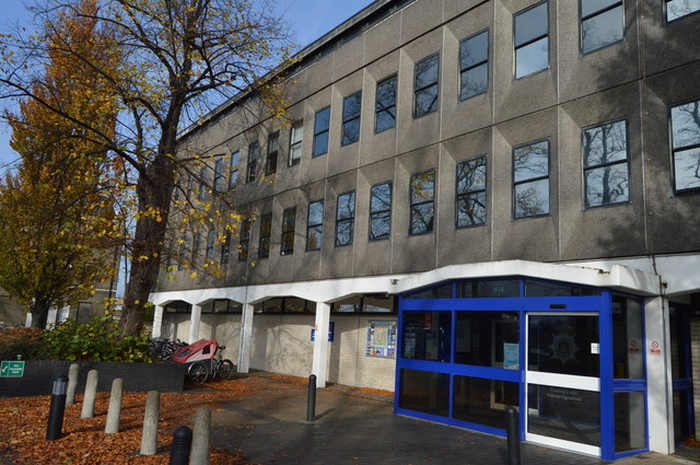Legislation passed under the Johnson government has undermined our democracy
Lauren Cotter argues that legislation laid during Johnson’s premiership has eroded democracy in the UK, with lasting consequences

The Police, Crime, Sentencing and Courts (PCSC) Act which provoked last year’s ‘Kill the Bill’ protests quietly came into force on 28th June. According to the government, the act heralds ‘landmark reforms to better protect the public and make our streets safer’. Yet, closer scrutiny suggests the new legislation functions as a veiled threat to citizens’ rights that will long outlast Johnson’s premiership.
The PCSC Act does contain some elements which have garnered public support. Clauses such as those increasing legal rights to victims of domestic abuse and ‘Harper’s Law’ which will see mandatory life sentences for the murder of emergency service workers on duty have been praised. However, under the guise of public protection, the Conservative government has been able to include provisions which define the vague act of ‘causing public nuisance’ a statutory offence. This fundamentally undermines the right to protest.
“The right of peaceful opposition, central to citizenship in a functioning democratic state, is deemed an offence”
Under direction of the Home Secretary Priti Patel and Justice Secretary Dominic Raab, this Government has justified limiting demonstrations by referencing alleged ‘guerrilla tactics’ of protest groups such as Extinction Rebellion (XR). XR protests have been criticised for affecting emergency services on certain occasions. Yet, incidents are rare and the organisation has expressed commitment to a ‘strict policy of letting ambulances through’. Nevertheless, the PCSC bill will act to fundamentally restrict protests deemed too loud and a ‘public nuisance’. By using the broad category of ‘public nuisance’, which is effectively an inevitable outcome of any protest, the fundamental right of peaceful opposition, central to citizenship in a functioning democratic state, is deemed an offence.
“Reforms are expected to deepen racial profiling and inequality within the criminal justice system by design”
The PCSC’s attack on protest rights is one component of a broader legislative assault on democracy and the potential for realising principles of equality in this country. A report by the Criminal Justice Alliance suggests that 10 clauses in the PCSC Bill will deepen racial inequality in the criminal justice system. Meanwhile, there is no corresponding evidence that the clauses ‘will reduce crime or improve public safety’, a charge which the government has acknowledged. Clauses such as the ‘Serious Violence Reduction Orders’ will expand police powers for ‘stop and searches’. Given the long history of racial inequality in UK policing and that black people were nine times more likely to be searched by police in 2020, it is deeply concerning that proposed reforms are expected to deepen racial profiling and inequality within the criminal justice system by design.
Consequences of these measures are even covered by the Home Office’s ’Equalities Impact Assessment’, which writes ‘any indirect difference in treatment on the grounds of race is anticipated to be potentially positive and objectively justified’.
Yet another target are the rights of travellers, with the legislation set to legalise police seizure of ‘unauthorised encampments’. The creation of a new criminal offence to ‘reside with a vehicle on land without permission’ is a direct attack which could see adults imprisoned or heavily fined. According to ’Friends, Families and Travellers’, the Government’s new bill ‘will force those who have nowhere else to go into a direct confrontation with the law’. The criminalisation and further marginalisation of communities by the Act has been rightly described as ’the first step of cultural annihilation’. Generations of travellers whose way of living has often been the subject of discrimination are now at the mercy of a new law which will fundamentally alter their way of life.
The results of the PCSC bill are yet to be seen, however the contents present a deeply worrying picture for the rights of travelling communities, public protests, and any move to reduce racial discrimination in the police system. When coupled with the ’Nationality and Borders Bill’, which allows the government to strip people of their British citizenship without warning, and the proposed repeal to the Human Rights Act, there is a clear pattern of behaviour on display. The Johnson Government leaves a legacy of an authoritarian turn and an eroded democracy that will be difficult to shake.
 Features / Beyond the porters’ lodge: is life better outside college?24 February 2026
Features / Beyond the porters’ lodge: is life better outside college?24 February 2026 News / Cambridge academics sign open letter criticising research funding changes22 February 2026
News / Cambridge academics sign open letter criticising research funding changes22 February 2026 Theatre / Footlights Spring Revue? Don’t Mind if I Do!25 February 2026
Theatre / Footlights Spring Revue? Don’t Mind if I Do!25 February 2026 Fashion / The evolution of the academic gown24 February 2026
Fashion / The evolution of the academic gown24 February 2026 News / Cambridge and Manchester Universities meet for innovation partnership26 February 2026
News / Cambridge and Manchester Universities meet for innovation partnership26 February 2026










![How to Create an Attractive Freelancer Portfolio [5 Tips & Examples]](https://www.varsity.co.uk/images/dyn/ecms/320/180/2026/02/vitaly-gariev-ho2tNOWZYXM-unsplash-scaled.jpg)